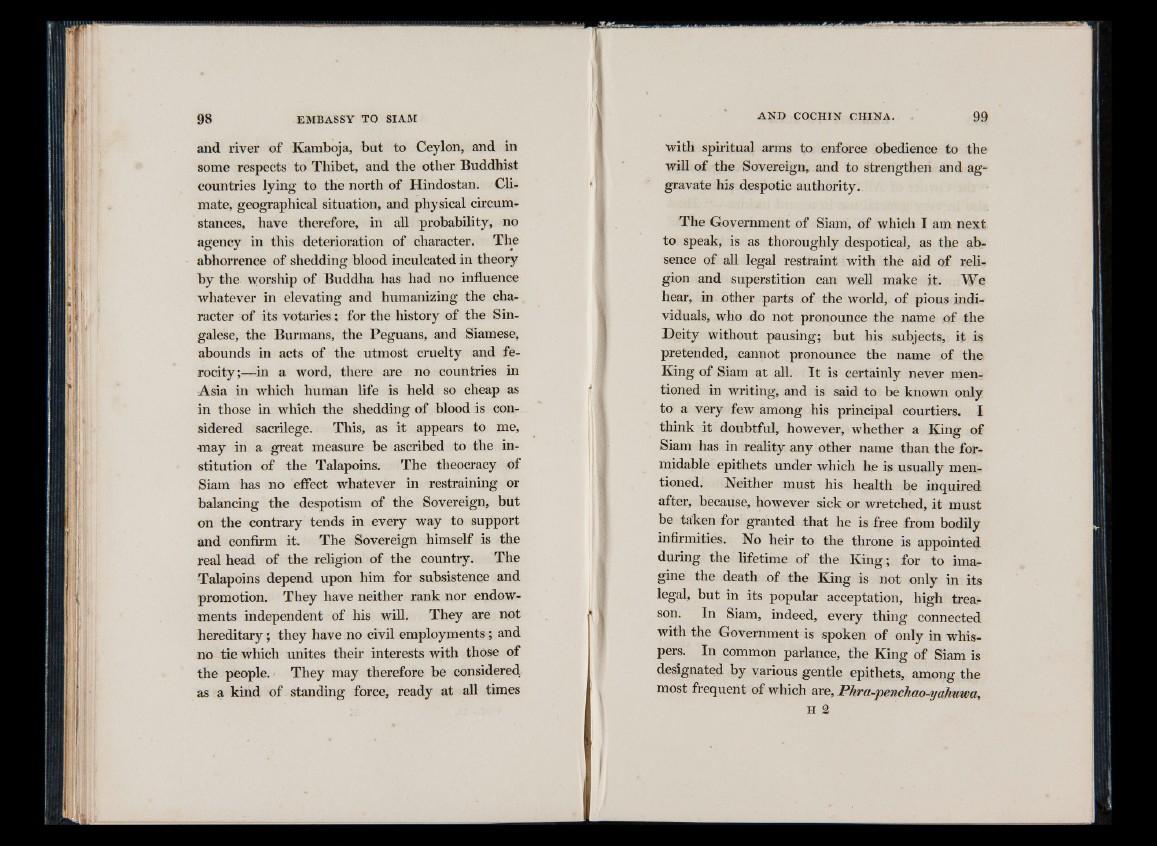
and river of Kamboja, but to Ceylon, and in
some respects to Thibet, and the other Buddhist
countries lying to the north of Hindostán. Climate,
geographical situation, and physical circumstances,
have therefore, in all probability, no
agency in this deterioration of character. The
abhorrence of shedding blood inculcated in theory
by the worship of Buddha has had no influence
whatever in elevating and humanizing the character
of its votaries ; for the history of the Sin-
galese, the Burmans, the Peguans, and Siamese,
abounds in acts of the utmost cruelty and ferocity;—
in a word, there are no countries in
Asia in which human life is held so cheap as
in those in which the shedding of blood is considered
sacrilege. This, as it appears to me,
may in a great measure be ascribed to the institution
of the Talapoins. The theocracy of
Siam has no effect whatever in restraining or
balancing the despotism of the Sovereign, but
on the contrary tends in every way to support
and confirm it. The Sovereign himself is the
real head of the religion of the country. The
Talapoins depend upon him for subsistence and
promotion. They have neither rank nor endowments
independent of his will. They are not
hereditary ; they have no civil employments ; and
no tie which unites their interests with those of
the people. < They may therefore be considered
as a kind of standing force, ready at all times
with spiritual arms to enforce obedience to the
will of the Sovereign, and to strengthen and aggravate
his despotic authority.
The Government of Siam, of which I am next
to speak, is as thoroughly despotical, as the absence
of all legal restraint with the aid of religion
and superstition can well make it. We
hear, in other parts of the world, of pious individuals,
who do not pronounce the name of the
Deity without pausing; but his subjects, it is
pretended, cannot pronounce the name of the
King of Siam at all. I t is certainly never mentioned
in writing, and is said to be known only
to a very few among his principal courtiers. I
think it doubtful, however, whether a King of
Siam has in reality any other name than the formidable
epithets under which he is usually mentioned.
Neither must his health be inquired
after, because, however sick or wretched, it must
be taken for granted that he is free from bodily
infirmities. No heir to the throne is appointed
during the lifetime of the K in g ; for to imagine
the death of the King is not only in its
legal, but in its popular acceptation, high treason.
In Siam, indeed, every thing connected
with the Government is spoken of only in whispers.
In common parlance, the King of Siam is
designated by various gentle epithets, among the
most frequent of which are, Phra-penchao-yahiiwa,
h 2